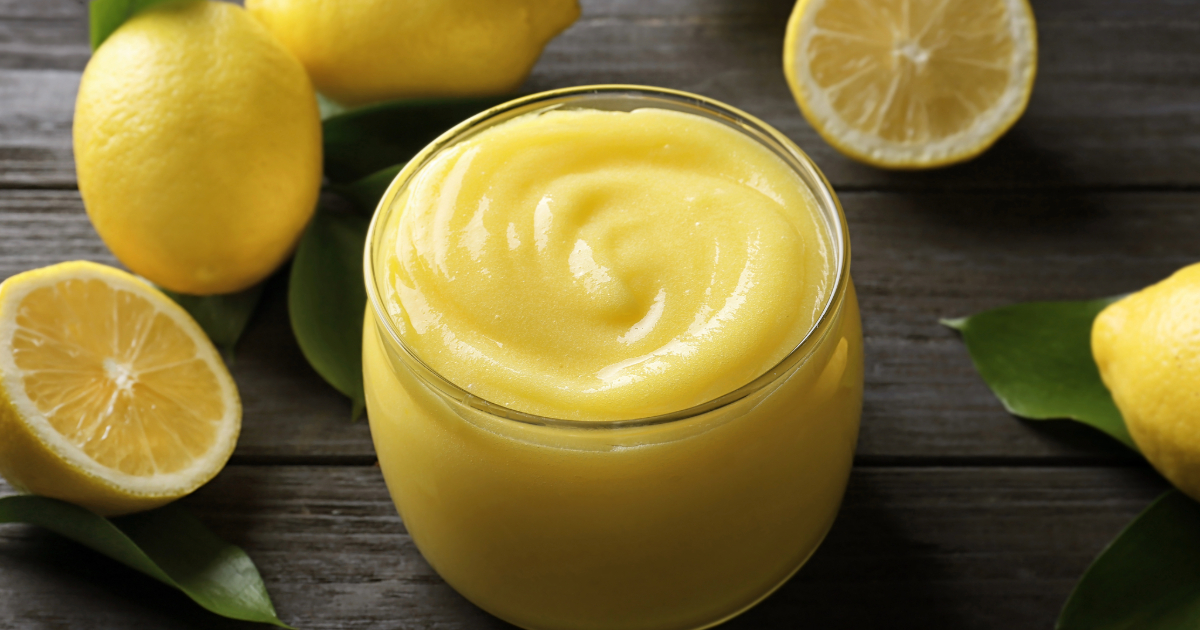Lemon curd and lemon cheese are two delightful lemony spreads that can be used to top scones, fill cakes, or simply spread on toast.

But what exactly sets these fruity concoctions apart?
At first glance, lemon curd and lemon cheese may seem one and the same. However, they do have some key differences when it comes to ingredients, texture, taste, and preparation method.
A Look at Lemon Curd
Lemon curd is a rich, velvety spread made by mixing lemon juice and zest with eggs, sugar, and butter. It has a lush, smooth and creamy texture thanks to the ample amounts of fat from the butter and eggs. Lemon curd has a sweet-tart, vibrant lemon flavor that is brimming with bright citrusy notes. It is an egg-based preparation which gives it a lush, custard-like consistency while also lending its sunny yellow hue.
Unlike lemon cheese, traditional lemon curd recipes do not contain any thickeners. It thickens on its own during the cooking process as the egg yolks and sugar are heated, forming a glossy and voluptuous mixture. Lemon curd has a loose, dripping consistency that is similar to that of a luxurious custard. It gracefully coats the back of a spoon but remains loose enough to effortlessly pour or pipe.
Lemon curd is prepared by gently cooking the ingredients together over a double boiler or bain-marie while frequently stirring. This low and slow cooking method allows the eggs to gradually thicken the curd without curdling. Once cooled, the decadent curd is ready to enjoy on breads, scones, or spooned directly from the jar.
The Scoop on Lemon Cheese
While lemon cheese may sound like a dairy product, it is actually a close cousin of lemon curd. Like curd, lemon cheese highlights the bright, aromatic essence of lemons. However, lemon cheese sets up into a thicker, sliceable consistency more akin to a soft cheese. It owes its thicker texture to the inclusion of cream cheese or milk solids rather than relying solely on egg yolks for body.
Lemon cheese boasts a smooth and spreadable texture ranging from a dense butter to a soft cream cheese. It is opaque with a matte finish rather than the slick, glossy sheen of curd. Lemon cheese is mildly tart yet sweet, capturing the pure, clean flavor of lemons. It is moderately thick while still being spreadable enough for topping breads or baking.
To achieve its signature thickness, lemon cheese is made using not only juice and zest but also thickeners like cream cheese, milk powder, cornstarch or gelatin. The ingredients are gently heated together until smooth, thick, and spreadable. Alternatively, some recipes call for thickening finished lemon curd with powdered milk solids or cream cheese. So in a sense, lemon cheese can be thought of as a thicker, more sliceable version of curd.
Key Takeaway: While similar, lemon curd relies on eggs for thickness and has a glossy, drizzling texture. Lemon cheese uses thickeners like cream cheese or milk powder to form a thicker, matte, spreadable texture.
Regional Names and Variations
While subtly different in texture, lemon curd and lemon cheese are very similar in taste and preparation. In fact, some speculate that the names lemon curd and lemon cheese arose from regional naming variations rather than differences in the actual recipes themselves.
In the U.K. in particular, lemon curd and lemon cheese are sometimes used interchangeably to refer to the same lemony, egg-rich preparations. For example, some county fairs insist entries be called "lemon cheese" while disqualifying entries dubbed "lemon curd" even if their recipes are identical.
So in many cases, the names lemon curd and lemon cheese can be used to describe nearly identical recipes, with the choice of name simply boiling down to regional preferences. However, today lemon cheesefrequently contains thickeners to boost its viscosity.
A Historical Perspective
To understand the blurred lines between lemon curd and cheese, it helps to take a brief look at their origins. Both lemon curd and cheese have rather muddled histories that may explain how they came to be lumped together or confused.
Lemon curd dates back to 19th century England as a spread to slather on bread and scones. However, early recipes for lemon "curd" bear little resemblance to the butter and egg-based curd we know today. Instead, these primitive curd recipes blended lemon juice and zest with fresh cream. The acidic lemons effectively "curdled" the cream, causing it to separate into curds and whey. The leftover lemon-scented curds were then drained, resulting in a primitive, velvety cheese-like spread. So in its earliest form, lemon curd was essentially identical to lemon cheese.
Over time, recipes evolved by swapping eggs and butter for cream. So while the name curd stuck, recipes transformed into the rich, pourable egg custards we associate with lemon curd today. Yet the historic ties between lemon curd and cheese help explain why the two terms are sometimes used interchangeably. They both originated from nearly identical fresh cream preparations.
How to Use Lemon Curd and Lemon Cheese
Lemon curd and lemon cheese share plenty of common culinary uses thanks to their similar flavors. Both can be used to:
- Fill or top cakes
- Fill crepes, tarts or pastries
- Sandwich cookies
- Swirl into yogurt, oatmeal or ricotta cheese
- Dollop onto scones or biscuits
- Spread onto toast, waffles or pancakes
- Stir into lemonade or tea for flavor
- Use as a cake icing or pastry filling
- Spoon over fresh berries or stone fruits
And while their sweet-tart lemon essence may taste similar, keep texture in mind depending on your intended use. Lemon curd will yield better results for pouring, drizzling or dolloping thanks to its lush yet fluid profile. Meanwhile, the thicker consistency of lemon cheese makes it ideal for slicing and shaping or neatly spreading onto pastries.
| Texture | Lemon Curd | Lemon Cheese |
|---|---|---|
| Consistency | Loose, pourable | Dense, sliceable |
| Finish | Glossy, translucent | Matte, opaque |
| Mouthfeel | Silky smooth, almost oily | Velvety, thick |
| Usability | Drizzling, pouring, dolloping | Slicing, shaping, spreading neatly |
No matter whether you call it curd or cheese, both toothsome lemon spreads pulse with bright citrus flavor. Lemon cheese offers a mildly thicker texture thanks to stabilizers like cream cheese or milk powder. Lemon curd boasts a smooth, languid profile from ample butter and egg yolks. But at the end of the day, both satisfy with their sweet-tart lemon essence.
Key Takeaway: Lemon curd and lemon cheese can be used interchangeably in recipes, keeping their different textures in mind. Lemon curd is better for drizzling while lemon cheese easily spreads.
FAQs
What is the difference between lemon curd and lemon cheese?
The main difference lies in texture. Lemon curd has a loose, pouring custard-like consistency from eggs and butter. Lemon cheese starts with lemon curd but thickens it with stabilizers like milk powder or cream cheese for a denser texture. They taste very similar, with lemon cheese being mildly less tart.
Why are both called cheese if they contain no cheese?
Early recipes for both lemon "curd" and "cheese" used fresh dairy cream as the base, resulting in cheese-like curds from the acidic lemon juice. Over time, recipes evolved but the traditional names stuck around. Today's lemon cheese uses cream cheese or milk solids to thicken while curd relies solely on butter and eggs.
Which is better for baking/topping pastries?
It comes down to personal preference! Lemon curd elegantly drizzles over scones thanks to its lush pouring texture. Lemon cheese neatly spreads onto crusts or tarts since it holds its shape well. Both offer vibrant lemon flavor perfect for pastries or baking.
Can lemon cheese be made by thickening lemon curd?
Yes! In fact, some recipes call for mixing powdered milk solids, cornstarch or cream cheese into fresh lemon curd. This helps stabilize and thicken the curd into a richer lemon cheese ideal for slicing or spreading.
Conclusion
While their names and histories may be murky, lemon curd and lemon cheese ultimately offer very similar sweet-tart, lemony appeal.
Lemon curd is the thinner, destinctly egg-rich version relying on butter for its graceful flowing texture.
Lemon cheese starts with similar ingredients but achieves a thicker, spreadable texture through the addition of thickeners ranging from cream cheese to milk powder.

